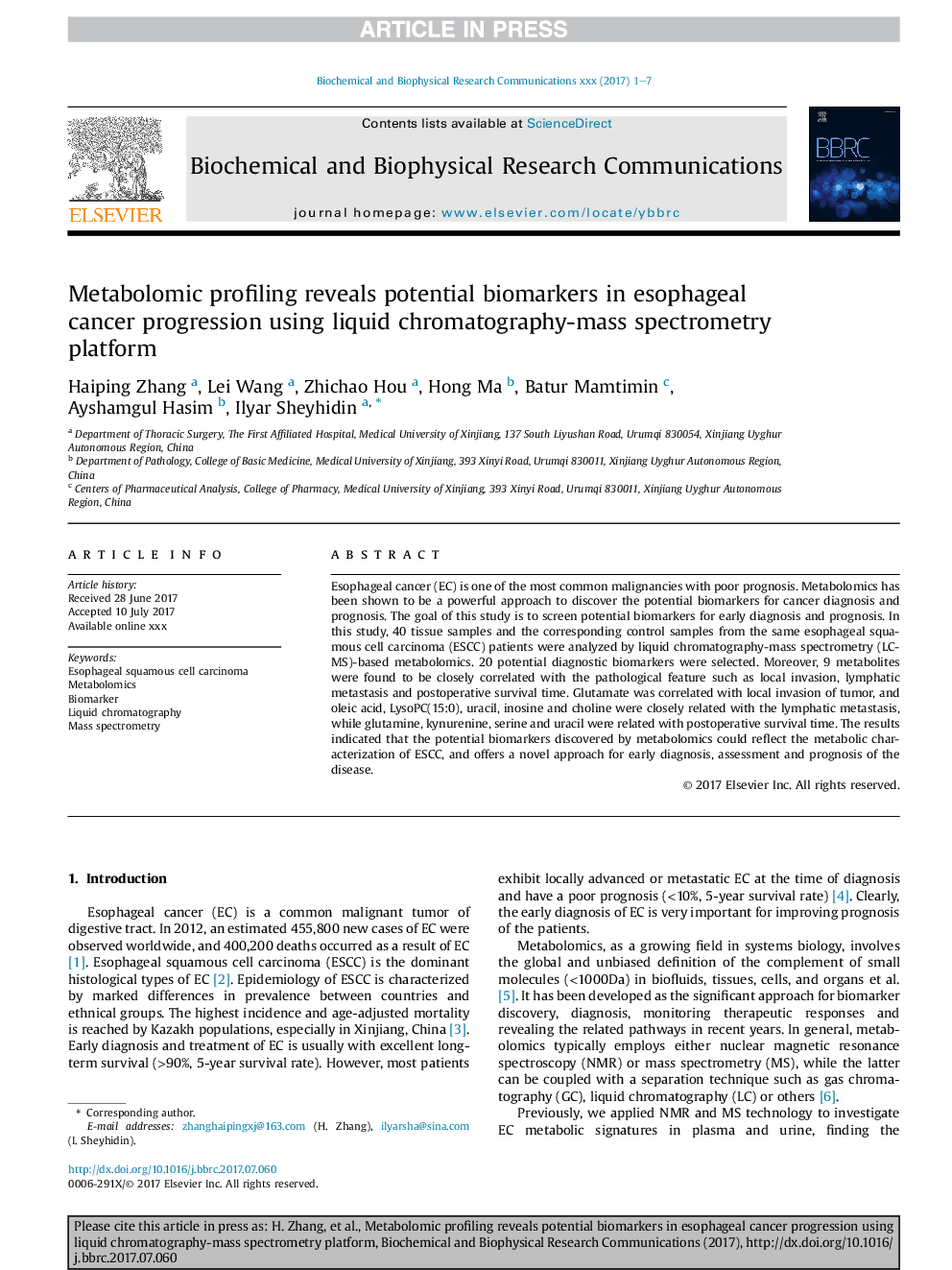| Article ID | Journal | Published Year | Pages | File Type |
|---|---|---|---|---|
| 5504807 | Biochemical and Biophysical Research Communications | 2017 | 7 Pages |
Abstract
Esophageal cancer (EC) is one of the most common malignancies with poor prognosis. Metabolomics has been shown to be a powerful approach to discover the potential biomarkers for cancer diagnosis and prognosis. The goal of this study is to screen potential biomarkers for early diagnosis and prognosis. In this study, 40 tissue samples and the corresponding control samples from the same esophageal squamous cell carcinoma (ESCC) patients were analyzed by liquid chromatography-mass spectrometry (LC-MS)-based metabolomics. 20 potential diagnostic biomarkers were selected. Moreover, 9 metabolites were found to be closely correlated with the pathological feature such as local invasion, lymphatic metastasis and postoperative survival time. Glutamate was correlated with local invasion of tumor, and oleic acid, LysoPC(15:0), uracil, inosine and choline were closely related with the lymphatic metastasis, while glutamine, kynurenine, serine and uracil were related with postoperative survival time. The results indicated that the potential biomarkers discovered by metabolomics could reflect the metabolic characterization of ESCC, and offers a novel approach for early diagnosis, assessment and prognosis of the disease.
Keywords
Related Topics
Life Sciences
Biochemistry, Genetics and Molecular Biology
Biochemistry
Authors
Haiping Zhang, Lei Wang, Zhichao Hou, Hong Ma, Batur Mamtimin, Ayshamgul Hasim, Ilyar Sheyhidin,
